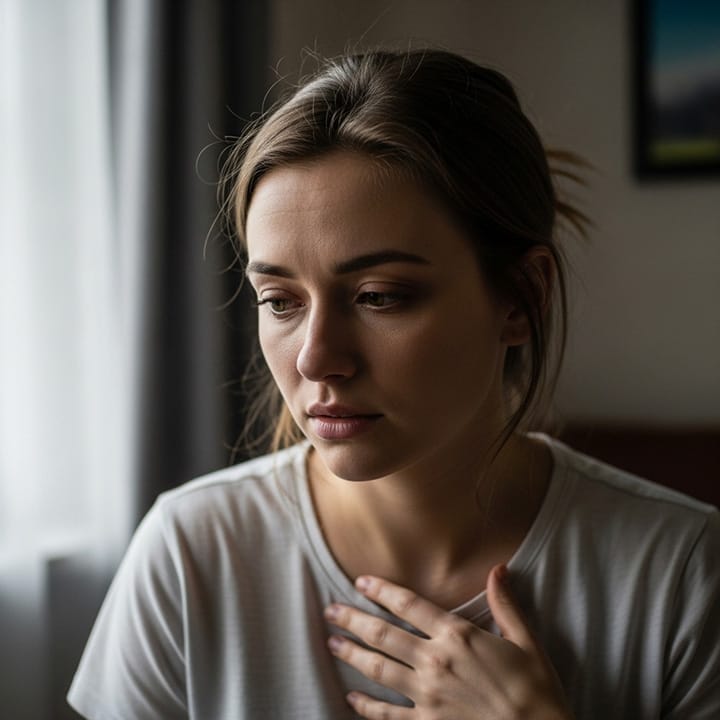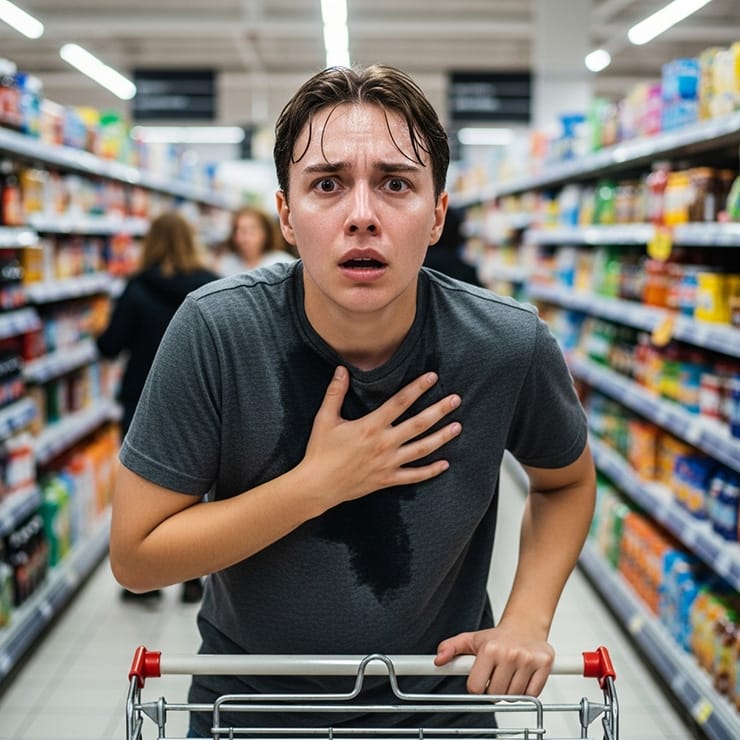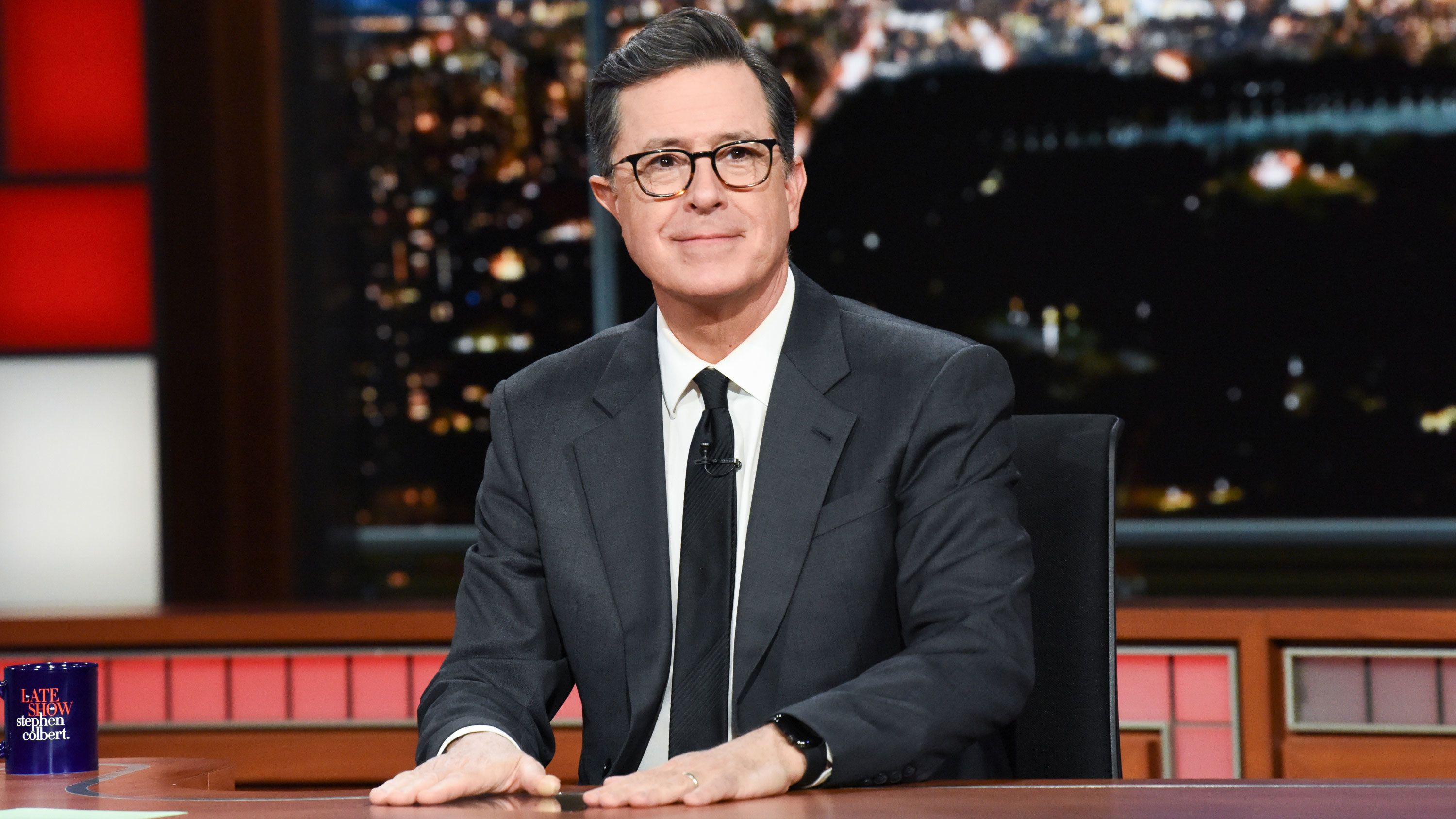When Stars Can't Breathe: How Celebrities Like Emma Stone and Adele Are Breaking the Silence on Panic Disorder

Your heart pounds like it's going to explode. You can't breathe. The world feels like it's ending, and you're convinced you're about to die. This isn't a scene from a thriller movie—it's what millions of people experience during a panic attack, including some of the world's most famous celebrities.
Once dismissed as a "celebrity illness," panic disorder has become one of the most common mental health challenges of our time. In the United States alone, approximately 6 million adults suffer from panic disorder, while globally, an estimated 13.2% of people will experience at least one panic attack in their lifetime. The numbers have surged dramatically since 2019, with anxiety disorders affecting over 301 million people worldwide.

What Exactly Is Panic Disorder?
Panic disorder is far more than just feeling nervous or stressed. It's a legitimate anxiety disorder characterized by sudden, unexpected waves of intense fear that trigger severe physical reactions when there's no real danger present. The most terrifying aspect? These attacks strike without warning—while you're shopping for groceries, sitting in a meeting, or even relaxing at home.
During a panic attack, symptoms typically peak within 10 minutes. Your heart races uncontrollably, you struggle to breathe, sweat pours down your body, and an overwhelming sense of impending doom takes over. Most episodes last 20-30 minutes, but for those experiencing them, it feels like an eternity.
What makes panic disorder particularly debilitating is the "anticipatory anxiety"—the constant fear of when the next attack will strike. This fear often leads people to avoid crowded places, public transportation, or any situation where escape might be difficult, severely impacting their quality of life.

Hollywood's Hidden Struggle: Celebrities Speaking Out
Some of the entertainment industry's biggest names have courageously shared their battles with panic disorder, helping to destigmatize this condition.
Emma Stone experienced her first panic attack at just 7 years old. "I was sitting in my friend's house, and I thought the house was burning down," she revealed in a Wall Street Journal interview. The Oscar-winning actress has been in therapy since age 8 and credits acting with helping her manage her anxiety. "All of my big feelings are productive, and presence is required," she explains, noting how performing keeps her grounded in the moment.

Photo by Britannica - Emma Stone
Adele, despite her powerhouse voice and commanding stage presence, has battled severe panic attacks throughout her career. The Grammy winner once escaped through a fire exit during a show in Amsterdam because her anxiety became overwhelming. "I have anxiety attacks, constant panicking on stage, my heart feels like it's going to explode because I never feel like I'm going to deliver, ever," she confessed. She's even considered ending her tours permanently due to the severity of her symptoms.

Photo by Sky News - Adele
Stephen Colbert, the beloved late-night host, started experiencing panic attacks in his late 20s. He describes walking in tight circles around his couch for hours, unable to break free from the anxiety. Interestingly, he discovered that performing was his key to managing the attacks—the moment he stepped on stage, the anxiety would dissipate.

Photo by CNN - Stephen Colbert
Oprah Winfrey opened up about experiencing a significant panic attack in 2013 during an especially hectic period. While filming "The Butler" and conducting numerous celebrity interviews simultaneously, she felt her heart racing and struggled to catch her breath. The media mogul's childhood trauma, including sexual abuse and teenage pregnancy loss, contributed to years of anxiety struggles.
:max_bytes(150000):strip_icc()/oprah-winfrey-071625-24fdca5a930247a586b87151276965d3.jpg)
Photo by Entertainment Weekly - Oprah Winfrey
Ryan Reynolds, known for his charming on-screen presence, has been candid about his lifelong anxiety. The actor experiences intense nervousness before public appearances, with physical symptoms like sweating and a racing heart. "I needed to be medicated when I was younger to deal with my anxiety," he shared with Rolling Stone.

Photo by The Hollywood Reporter - Ryan Reynolds
Other notable figures include Prince Harry, who revealed experiencing panic attacks related to his mother's death, Johnny Depp, who battles social anxiety disorder, and Missy Elliott, who required medical attention for a panic attack before her 2015 Super Bowl performance.

Photo by Yahoo - Prince Harry
The impact of celebrity disclosure has been profound. Research from Seoul Asan Hospital found that after prominent celebrities began sharing their panic disorder experiences in 2010, diagnosis rates increased by 9.4 times. These brave revelations gave countless individuals the courage to seek help for their own struggles.
Understanding the Root Causes
While the exact cause of panic disorder remains unclear, research points to multiple contributing factors:
Biological factors play a significant role. Imbalances in neurotransmitters like serotonin and norepinephrine, or an overactive amygdala (the brain's fear center), can trigger false alarms in our body's threat detection system. Think of it as a smoke detector that goes off when you're just making toast.
Genetic predisposition is also significant. If you have a family member with panic disorder, your risk increases 4-8 times. This doesn't mean you're destined to develop it, but you may be more vulnerable.
Environmental and psychological factors matter too. Chronic stress, perfectionism, major life changes, or traumatic experiences can all contribute. The modern world's constant pressure—from social media scrutiny to economic uncertainty—has created a perfect storm for anxiety disorders.
Interestingly, research shows that panic disorder affects women nearly twice as often as men, with peak onset typically occurring between ages 15-24.

Hope Through Treatment: Recovery Is Possible
Here's the encouraging news: panic disorder is highly treatable. With proper intervention, 70-90% of patients see significant improvement.
Medication often provides the foundation for treatment. Selective serotonin reuptake inhibitors (SSRIs) and anti-anxiety medications can help regulate brain chemistry and reduce symptom severity. Most patients need 8-12 months of consistent medication to see optimal results, though relief often begins much sooner.
Cognitive Behavioral Therapy (CBT) has proven remarkably effective. This approach helps reframe catastrophic thinking patterns—transforming "I'm going to die" into "This is uncomfortable but not dangerous, and it will pass." Exposure therapy, where patients gradually face feared situations, helps break the avoidance cycle that perpetuates the disorder.
Practical Strategies for Daily Management
Beyond professional treatment, several self-help strategies can make a significant difference:
Regular exercise acts as a natural anxiety reducer. Start with gentle walks and gradually increase intensity. Exercise releases endorphins and helps burn off excess adrenaline that can trigger attacks.
Master breathing techniques. During panic, people often hyperventilate, worsening symptoms. Practice diaphragmatic breathing: inhale slowly through your nose for 4 counts, hold for 4, exhale through your mouth for 6. This activates your parasympathetic nervous system, promoting calm.
Limit caffeine and alcohol. That morning coffee might seem essential, but caffeine can trigger heart palpitations that mimic panic symptoms. Alcohol might temporarily ease anxiety but ultimately disrupts sleep and mood regulation.
Prioritize sleep hygiene. Aim for 7-9 hours nightly. Sleep deprivation makes you more vulnerable to anxiety and reduces your ability to cope with stress.
Practice mindfulness. Apps like Headspace or Calm offer guided meditations specifically designed for anxiety management. Even 10 minutes daily can rewire your brain's stress response.
Breaking the Stigma: You're Not Alone
The COVID-19 pandemic triggered a 25% increase in global anxiety and depression rates, making mental health struggles more common—and more visible—than ever. Yet despite affecting millions worldwide, panic disorder still carries unnecessary shame.
If you're struggling with panic attacks, remember that seeking help isn't weakness—it's wisdom. Just as Emma Stone found healing through therapy and acting, Adele continues performing despite her fears, and Stephen Colbert turned his anxiety into creative fuel, you too can find your path to recovery.
Mental health professionals are better equipped than ever to help. Teletherapy has made treatment more accessible, and new therapeutic approaches continue to emerge. Support groups, both online and in-person, connect you with others who truly understand your experience.
The celebrities who've shared their stories aren't just rich and famous people with problems—they're human beings who've chosen vulnerability over silence, helping millions realize they're not broken or alone.
Panic disorder doesn't discriminate based on success, wealth, or fame. It's not a character flaw or a sign of weakness. It's a medical condition that deserves the same compassion and treatment as any physical illness.
If you're experiencing symptoms, don't wait for them to magically disappear. Reach out to a mental health professional, talk to your doctor, or call a crisis helpline. Your life doesn't have to be limited by fear.
As Prince Harry eloquently stated, "You help yourself so that you can help others." By addressing your panic disorder, you're not just reclaiming your own life—you're joining a growing movement that's transforming how we understand and treat mental health globally.
Remember: panic attacks are terrifying, but they're not dangerous. Treatment works. Recovery is possible. And you deserve to breathe freely again.
